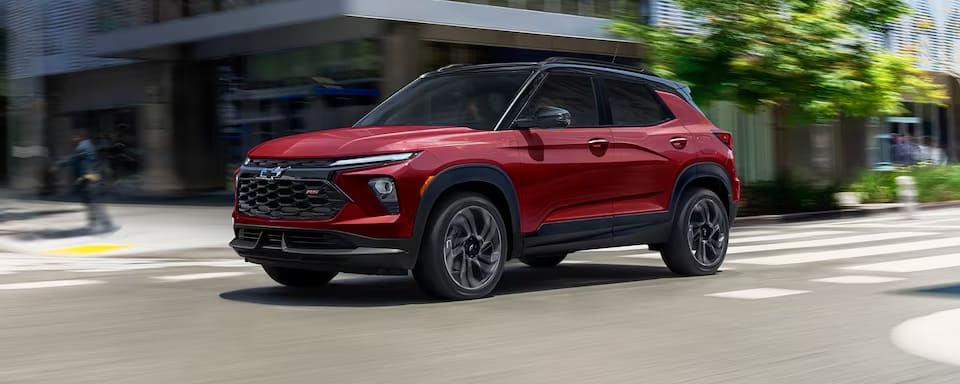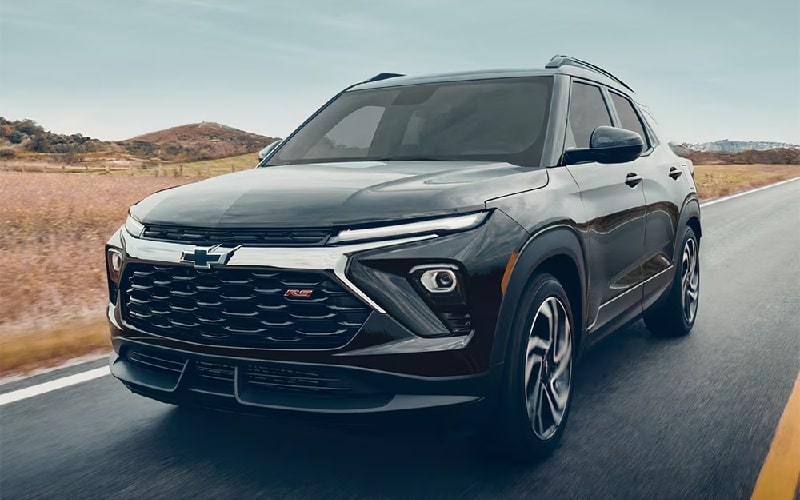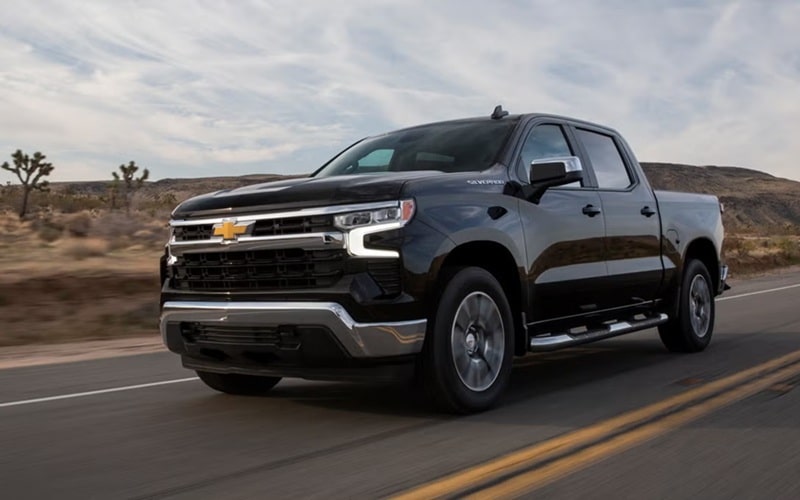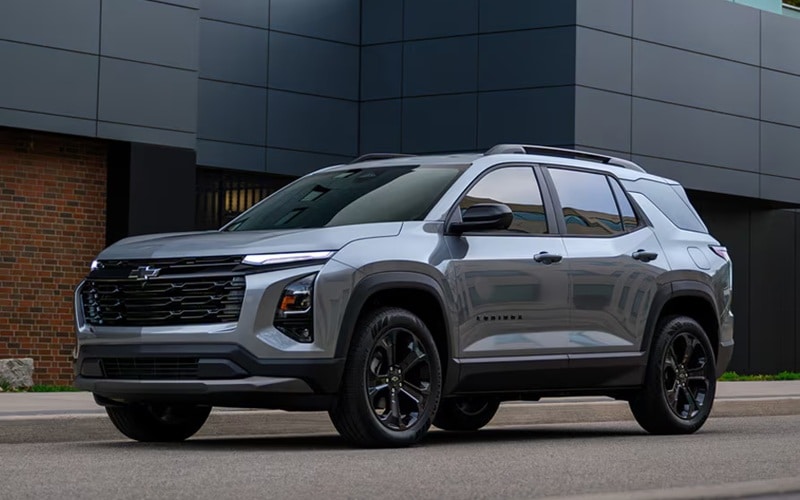When to Take Your Chevrolet Vehicle to the Dealership
Owning a Chevrolet comes with the responsibility of proper maintenance and care. While you can perform many routine tasks at home or at local repair shops, there are specific situations when visiting a Chevrolet dealership is not just recommended but necessary. This guide will help you understand when it’s time to schedule an appointment with […]
Owning a Chevrolet comes with the responsibility of proper maintenance and care. While you can perform many routine tasks at home or at local repair shops, there are specific situations when visiting a Chevrolet dealership is not just recommended but necessary. This guide will help you understand when it’s time to schedule an appointment with your local Chevrolet dealer.

Warranty-Related Services
One of the primary reasons to visit a dealership is for warranty-related services. Chevrolet offers various warranties, and to keep them valid, you often need services performed at an authorized dealership.
New Vehicle Limited Warranty
The Chevrolet New Vehicle Limited Warranty typically covers:
- Bumper-to-bumper coverage for 3 years or 60,000 kilometers, whichever comes first
- Powertrain coverage for 5 years or 100,000 kilometers, whichever comes first
During this period, it’s crucial to have all warranty-related repairs and services performed at a dealership to maintain warranty coverage.
Extended Warranties
If you’ve purchased an extended warranty, many plans require that services be performed at authorized dealerships. Always check your warranty terms to ensure compliance.
Recall Services
Like all automakers, Chevrolet occasionally issues recalls for safety-related issues or defects. When a recall is announced:
- You’ll receive a notification from Chevrolet if your vehicle is affected.
- Recall services are always free of charge.
- Only authorized Chevrolet dealerships can perform recall repairs.
It’s crucial to address recall notices promptly to ensure your vehicle’s safety and performance.
Complex Diagnostic Issues
Modern vehicles have sophisticated computer systems and sensors. When you encounter:
- Check Engine Light that persists or returns after basic troubleshooting
- Electrical system malfunctions
- Transmission issues
- Advanced driver assistance system (ADAS) problems
Dealerships have access to specialized diagnostic tools and software that can pinpoint issues more accurately than generic OBD-II scanners.
Major Repairs and Overhauls
For significant repairs or overhauls, especially those involving:
- Engine rebuilds or replacements
- Transmission repairs or replacements
- Hybrid or electric vehicle battery services
Dealership technicians have model-specific training and access to genuine Chevrolet parts, ensuring they repair your vehicle to factory specifications.
Software Updates
Many modern Chevrolet models require periodic software updates to improve performance, fix bugs, or add new features. These updates often involve:
- Infotainment system upgrades
- Engine control module (ECM) updates
- Transmission control module (TCM) updates
While you can do some updates over-the-air, others require specialized equipment only available at dealerships.
Maintenance for High-Performance Models
If you own a high-performance Chevrolet like a Camaro ZL1 or Corvette, certain maintenance tasks are best left to dealership specialists. These may include:
- Performance tuning
- Track-focused brake system services
- Specialized fluid changes (e.g., differential fluids for track use)
Dealership technicians have training to handle the unique requirements of these high-performance vehicles.
Scheduled Maintenance for Newer Models
For newer Chevrolet models, especially those still under warranty, following the manufacturer’s recommended maintenance schedule is crucial. This often includes:
- Oil changes (typically every 12,000 km or annually for modern engines)
- Tire rotations (usually every 12,000 km)
- Multi-point inspections
- Cabin and engine air filter replacements
- Brake fluid changes (typically every 3-5 years)
Having them done at a dealership ensures they’re recorded in your vehicle’s service history, which can be valuable for warranty claims and resale value.
Specialized Services for Electric and Hybrid Vehicles
If you own a Chevrolet Bolt EV or any hybrid model, certain services should be performed at the dealership:
- High-voltage battery inspections and services
- Electric drive unit fluid changes
- Regenerative braking system maintenance
These systems require specialized training and equipment to service safely and correctly.
Accessory Installation
When adding genuine Chevrolet accessories to your vehicle, having them installed at the dealership offers several benefits:
- Ensures proper fitment and integration with vehicle systems
- Installation is often covered under warranty
- Maintains the vehicle’s warranty for affected systems
Popular accessories that benefit from dealership installation include:
- Remote start systems
- Advanced security systems
- Towing packages
Pre-Purchase Inspections for Certified Pre-Owned Vehicles
If you’re considering a Certified Pre-Owned (CPO) Chevrolet, an authorized Chevrolet dealership must complete the inspection and certification process. This process typically includes:
- A comprehensive 172-point inspection
- Reconditioning to meet Chevrolet CPO standards
- Extended warranty coverage
Lease-End Services
If you’re leasing a Chevy, you’ll need to return it to a dealership at the end of your lease term. Before returning:
- Schedule a pre-inspection at the dealership (usually 60-90 days before lease end)
- Address any excess wear and tear issues
- Discuss lease-end options (return, buy-out, or lease a new vehicle)
Diagnostics for Intermittent Issues
Some problems only occur intermittently, making them challenging to diagnose. Dealerships have resources to address these elusive issues:
- Access to Technical Service Bulletins (TSBs) specific to your model
- Ability to contact Chevrolet engineering for support on complex issues
- Specialized testing equipment for intermittent electrical or sensor problems
Maintenance Considerations
While dealership services can sometimes be more expensive than independent shops, they offer several advantages:
- Factory-trained technicians
- Genuine Chevrolet parts
- Up-to-date technical information and tools
Many dealerships offer service packages or promotions that can save routine maintenance costs.
Prepare for Your Dealership Visit
To make the most of your dealership visit:
- Schedule an appointment in advance
- Clearly describe the issue or service needed when booking
- Bring your owner’s manual and service records
- Be prepared to leave your vehicle if extensive work is required
- Ask for a written estimate before authorizing any work
- Inquire about any current service promotions or discounts
Ensure Optimal Performance with Dealership Service
While it’s not necessary to visit a Chevrolet dealership for every service your vehicle needs, there are clear instances where dealership expertise and resources are invaluable. From maintaining your warranty to addressing complex issues and performing specialized services, dealerships play a crucial role in keeping your Chevy running at its best.
Regular maintenance at a dealership or a trusted independent shop is key to the longevity and performance of your Chevy. By understanding when dealership visits are necessary and when you have other options, you can make informed decisions about your vehicle’s care and maintenance.
Remember, your local Chevrolet dealership is not just a place for sales; it’s a resource for maintaining and enhancing your vehicle throughout its lifecycle. Don’t hesitate to reach out to them with questions or concerns about your vehicle’s needs.


